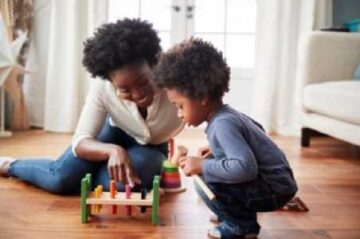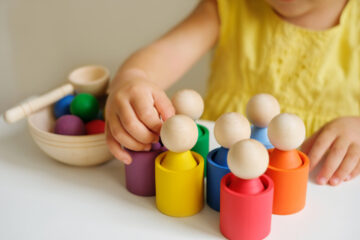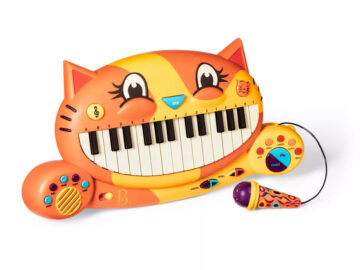Future success depends on children and youngsters like their toys. Is there a connection between a child’s environment of toys and their development? So we discuss Importance of toys, Do you recall the name of your favourite childhood toy? We all have happy recollections of playing with toys, whether it was a plastic GI Joe or a plush teddy bear. You probably aren’t aware of how your education and child development were impacted by toys throughout time. In actuality, there is a purpose for why toys and enjoyable art are used to teach young children. A child’s talents and skills can be magically improved by toys, which better prepare them for life.
We have a strong interest in toys. We are even more passionate about providing children with toys crucial to their early development.
Let’s briefly look at 5 crucial factors regarding toys and kid development.
- Open-ended toys can inspire imagination and creativity
Toys that can be used in various ways encourage your kid to use their imagination and develop narrative thinking. They can then view the world more broadly as a result of this. It’s crucial to foster creativity in children because it teaches them to think beyond the box.
A youngster will interpret basic objects like blocks, dolls, animal toys, balls, toy vehicles, or pretend food as invitations to begin making up stories and imagining scenarios in their head. A child’s first classroom is actually in their play.
Kids will easily reassign items that weren’t originally intended to be toys, especially if that’s all available. These objects are excellent for encouraging your child to use their imagination, including a stick, a rock, a container, and a box.
- Toys teach kids about STEAM.
Children’s brains are like sponges. They constantly input data from their environment. Children may discover science, technology, engineering, art, and mathematics through toys. No matter how basic or sophisticated a toy is, it has a lesson to impart to your child and emphasizes the value of playtime.
Your youngster will learn about physics as they construct a skyscraper out of blocks and then watch it gradually crumble to the ground. Kids become intrigued about how everything works after seeing a remote-control car bounce about only using the radio waves of the controller. Your child’s brain is stimulated by a puzzle, which also encourages pattern exploration.
Never undervalue the influence of toys on children’s learning. Because it appeals to their senses, imaginative play helps children learn more. This offers them a cognitive advantage and motivates them to keep learning more about their surroundings.
- Toys refine a child’s motor development
Youngsters exercise their motor skills and improve their hand/eye coordination when they grip a toy and learn to handle it. Your child will move through the phases of physical development faster.
A child’s development is greatly aided by toys that require them to push, pull, grip, squeeze, spin, or otherwise use their hands and bodies to make something happen.
Small toys that fit in your child’s hands, such as dolls, automobiles, and building blocks, are frequently their favourites since they are simple to handle and transport. Kids have complete control when they use their hands to place their toys or tuck them away in their pockets. Toys with more minor elements, like buttons, zippers, or beads, allow kids to hone their fine motor skills.
More giant toys that children can manipulate with their entire body are just as beneficial for their physical development. Children who acquire these abilities are better equipped to manage more difficult activities later, whether riding a bike, jumping on a pogo stick, or tossing or catching a beach ball.
- Too many toys can be overwhelming.
Toys can be beautiful and significant, but don’t forget that a youngster might get overwhelmed by too many choices. When it comes to toys, quantity is not preferable to quality. Fewer toys that your child can use more effectively are preferable to more toys that only accumulate in the play area and add to the clutter.
It’s likely that the excess of toys in your kid’s environment is hurting their emotional health if you observe that your child struggles to clean up after themselves, experiences strong emotions when playing, or complains that they are bored despite having a lot of toys.
- Toys can help a child emotionally mature.
Toys provide children with a sense of community, happy memories, and a method to express their emotions. Have you ever noticed how devoted kids are to their toys? This is a phenomenon that often encourages strong and wholesome bonds. Children relate affection, attention, and enjoyment to their toys. Therefore, they create and foster fond childhood memories when they pay attention to their toys.
They then relate these emotional connections to their playmates or parents who engage in play with them and their toys. A safe face or location can be provided by toys if children need to talk about something that worries or frightens them.
Children who engage in hours of imaginative play with their toys are likely to have healthier, happier childhoods that they will cherish. As a result of being able to completely experience being a child, individuals may find it simpler to make the move to adulthood.


















